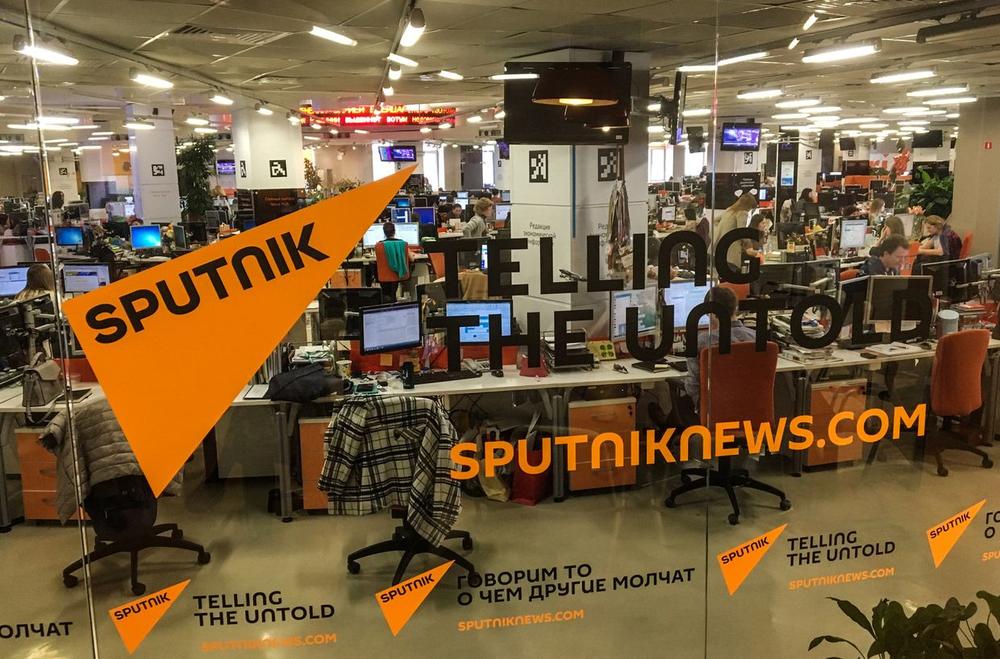Azerbaijan has released the head of the Russian state-run media outlet Sputnik's local bureau from a detention facility following negotiations with Moscow, the Russian newspaper Kommersant reported on Oct. 10.
The newspaper cited Russian President Vladimir Putin's aide Yuri Ushakov. Igor Kartavykh, editor-in-chief of Sputnik Azerbaijan, was moved from police detention to house arrest in Baku, according to Dmitry Kiselyov, who oversees Sputnik's parent organization, Rossiya Segodnya (Russia Today).
The development comes amid easing tensions between Moscow and Baku following months of strained relations over a deadly plane crash.
Kartavykh and his deputy were detained in June after Azerbaijani law enforcement raided Sputnik's office in Baku, accusing the outlet of "illegal financing." Russia denied the allegations and demanded their release.
Sputnik, a key pillar of the Kremlin's global propaganda network, has long been accused by Western governments and media watchdogs of spreading disinformation and pro-Russian narratives.
Ushakov told Kommersant that Moscow had freed an Azerbaijani citizen in return. The newspaper identified the released individual as Mamedali Agayev, the former head of the Moscow Satire Theater.
Putin publicly admitted on Oct. 9 for the first time that Russian air defenses were responsible for downing an Azerbaijani Airlines passenger jet in December 2024.
Speaking alongside Azerbaijani President Ilham Aliyev in Dushanbe, Tajikistan, Putin said two Russian missiles exploded near the plane during an alleged Ukrainian drone attack on Grozny in Chechnya, sending fragments into the aircraft. The jet, flying from Baku to Grozny, crashed in Kazakhstan's Aktau region, killing 38 of the 67 people on board.
Putin expressed condolences and said Moscow would conduct a legal review of officials' actions and provide compensation to the victims' families, state news agency TASS reported. He added that Russia was "tracking" three Ukrainian drones at the time of the incident.
The Kremlin's admission marks a rare acknowledgment of fault and follows months of accusations from Baku, which had condemned Moscow for concealing evidence and offering "absurd versions" of the crash.

 Boring Company cited for almost 800 environmental violations in Las Vegas
Boring Company cited for almost 800 environmental violations in Las Vegas